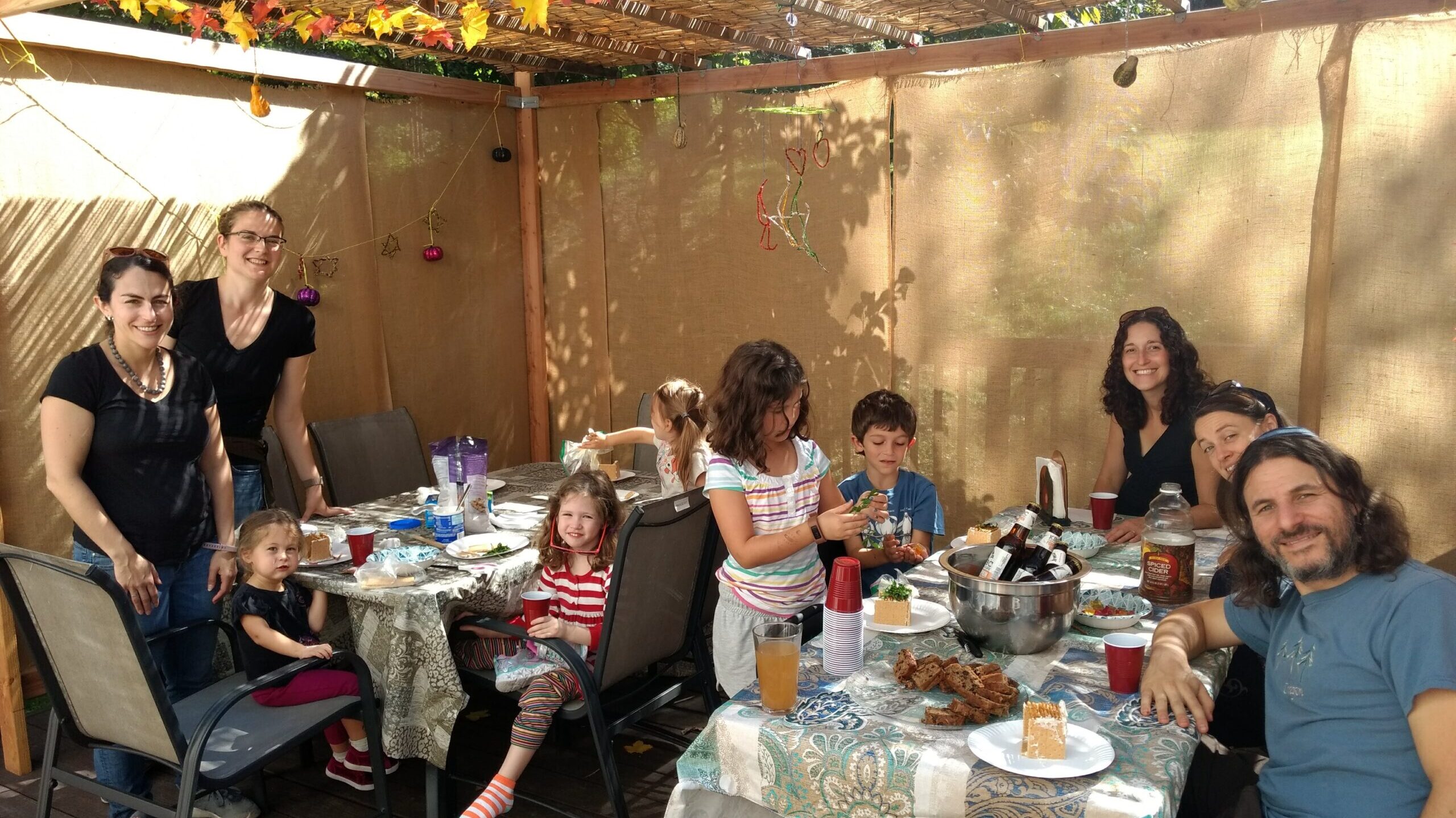When you don’t have family nearby, holidays can feel more intimidating than joyful.
I moved to Northern Virginia in April 2016, the week before Passover. We didn’t know anyone Jewish in the area, and as our home was still half full of boxes, we asked a local synagogue to match us with seder hosts. Their hospitality was lovely, but making small talk over matzoh while keeping an eye on a fidgety preschooler and toddler was awkward. I wasn’t keen to repeat the experience for the fall holidays.
That gave me nearly half a year to find “my people” — new friends to share my holiday table at Rosh Hashanah, Sukkot, and Chanukah. But where do you meet people as the parent of small kids when you work from home? The answer turned out to be the J.
Every afternoon, I drove to the J to pick up my kids, first at the ECLC then at camp. Inevitably, my daughter would refuse to put on her shoes, so we would wait in my son’s preschool classroom until she was willing to put on outerwear. Once summer came, I had to physically extract my son from his beloved counselors on a daily basis, which always took longer than expected. Needless to say, I spent a lot of time at the J!
Which meant I started to recognize and talk to the “regulars” there. I chatted with other preschool parents when we arrived at the same time to pick up our children, waiting for the kids to shed their Elsa dresses or finish their art projects. I said hi to folks I recognized from our synagogue, and we asked each other what brought us to the J. Conversations turned into play dates and occasionally a Shabbat dinner.
I also connected with the J’s Growing Jewish Families program. I met one of the ambassadors for coffee, and she told me about area events, such as apple picking and ice cream socials, perfect for meeting other families with young kids.
I even started talking to strangers! I always crossed paths with this one woman, who was about my age with curly hair just like mine; on more than one occasion, folks at the J confused me for her. I finally had a real conversation with her when we both showed up to a planning meeting for a new women’s Rosh Chodesh group. It turns out she worked for the J and was also an ECLC parent, plus we shared a Boston connection. Her family was one of the first people I invited over to my new house, when my dining room was set for hosting but my living room still had no furniture.
Thanks to the J, when the holidays rolled around again, I had a new, chosen family to invite to my Rosh Hashanah dinner and Chanukah party. No need for holiday blues or awkward small talk with strangers.
Whether you’ve moved here for work or to be closer to your grown children, or you’re a longtime resident whose friends and families have moved away, you, too, can find your people at the J. Make a friend at a pickleball or mah jong class, chat with fellow parents at preschool or Chai 5 aftercare pickup, find a workout buddy at the J-Fit gym, or connect with others over volunteer work, art openings, and speaker events. Your holiday table – not to mention your social calendar – may soon fill up.
Ready to make new friends and discover your chosen family? Check out the J’s calendar of events to find a program that fits your schedule and interests.









